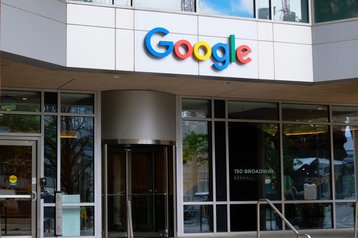Google has settled a $28 million class action over pay disparities.
As reported by the Daily Journal and Law360, Google was found to have violated employment laws related to race and ethnicity by a Santa Clara County judge due to employee salary differences for similar roles.
The class settlement received preliminary approval from a Santa Clara County Superior Court judge earlier this month. It will see the tech giant pay $28 million to settle the suit and also work with a labor economist and industrial and occupational psychologist to review its annual pay equity audits and process for determining the levels at which workers are hired.
The settlement covers all "current and former Hispanic, Latinx, Indigenous, Native American, American Indian, Native Hawaiian, Pacific Islander, and/or Alaska Native employees" of Google in California between February 18, 2018, and December 31, 2024.
The class action suit was brought by Google employee Ana Cantu, who alleged that the company engaged in systemic pay discrimination against Hispanic, Latinx, Indigenous, Native American, Native Hawaiian, Pacific Islander, and Alaska Native employees compared to white employees.
Cantu identifies as ethnically Mexican and racially Indigenous, and worked in California for Google’s People Operations and Cloud departments for approximately seven years. She claimed in the class action suit filed on August 12, 2021, that she was "mis-leveled" and paid significantly less than her white colleagues for "substantially similar work."
Cantu, and other workers affected, have been represented by employment lawyers from Gunn Coble, with the firm seeking "unpaid wages, bonuses, stock, liquidated damages, and penalties (including penalties under the Private Attorneys General Act) on behalf of aggrieved employees."
Google was represented by Felicia A. Davis and Eric DistelBurger of Paul Hastings LLP.
In the complaint, Cantu argued that Google uses a hiree's salary history to determine pay and job level, and limited merit and promotion-related raises to a percentage of the previous salary, which "inextricably linked" compensation to salaries that were embedded in race and ethnicity differences in compensation with non-white employees historically paid less.
Among the evidence put forward was a leaked 2022 employee pay spreadsheet that saw nonwhite employees earning less.
Cathy Goble of Gunn Goble said: "She risked her career to raise race/ethnicity pay disparity at Google. I also want to acknowledge the bravery of both the diverse and ally Googlers who self-reported their pay and leaked that data to the media, enabling us to push for discovery of the data necessary to support this class action. Suspected pay inequity is too easily concealed without this kind of collective action from employees."
A Google spokesperson said in a statement: "We reached a resolution, but continue to disagree with the allegations that we treated anyone differently, and remain committed to paying, hiring, and leveling all employees fairly."
DCD has reached out to Google and Gunn Coble for further information about the resolution.
Google is no stranger to such lawsuits.
In 2018, former YouTube employee Arne Wilberg sued Google, claiming the company pressured recruiters to only look for female, black, and Hispanic or Latinx applicants with “clear and irrefutable policies” meant to exclude white and Asian men in an attempt to increase the company’s overall diversity. Wilberg further stated the company fired him in November 2017 for opposing these policies.
In 2022, the company paid $118 million to settle a gender discrimination case in which plaintiffs alleged that the company paid women less than men in the same job code. A separate case in 2023 saw Google paying $1.15 million to Ulku Rowe, a Google Cloud engineering tech director, who said the company discriminated against her based on her gender, retaliated against her when she complained, and denied her a promotion that went to a less-qualified man. The jury found Google guilty of sex discrimination and retaliation.
In 2021, the company paid nearly $2.6 million in back wages to thousands of workers over claims the company's pay and hiring practices illegally disadvantaged women and Asians.
Earlier this year, Google scrapped its diversity hiring goals following President Donald Trump's signing of two executive orders that aimed to unravel Diversity, Equity, and Inclusion (DEI) measures.
The first executive order was titled “Ending radical and wasteful government DEI programs and preferencing,” and overturned former President Joe Biden's 2021 executive order that promoted such programs in the federal government. The second overturned equity policies, some of which were signed by Lyndon B Johnson during the civil rights era, and accused companies and institutions of adopting “dangerous, demeaning and immoral race- and sex-based preferences under the guise of so-called ‘diversity, equity and inclusion.’”
Alphabet, Google's parent company, had previously included in annual reports a line stating the company “committed to making diversity, equity, and inclusion part of everything we do and to growing a workforce that is representative of the users we serve.” This was omitted from the latest annual report.







